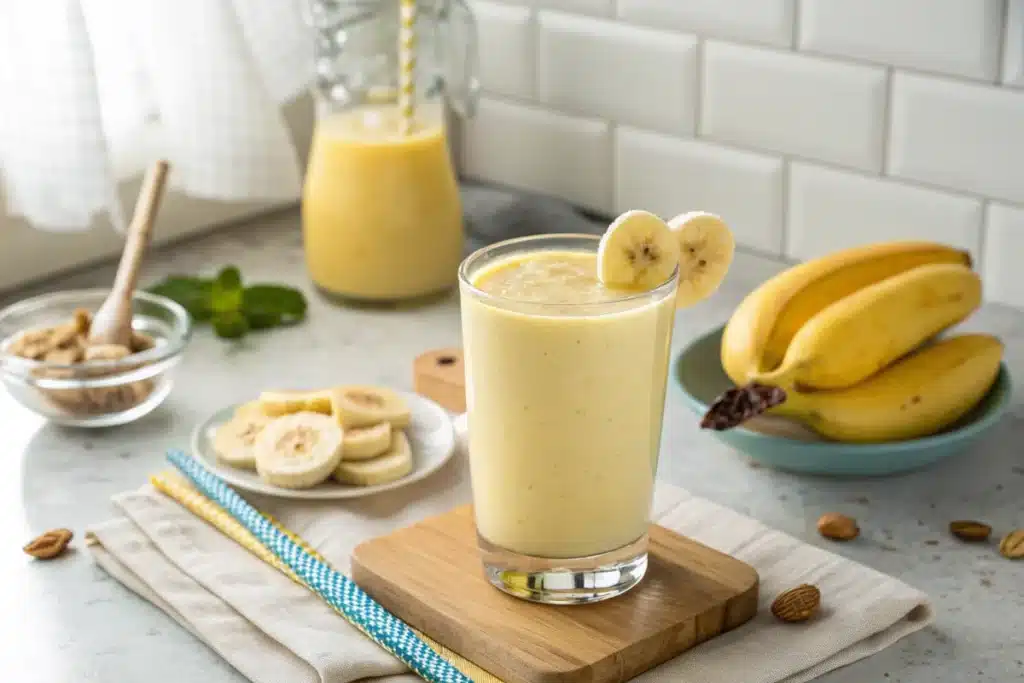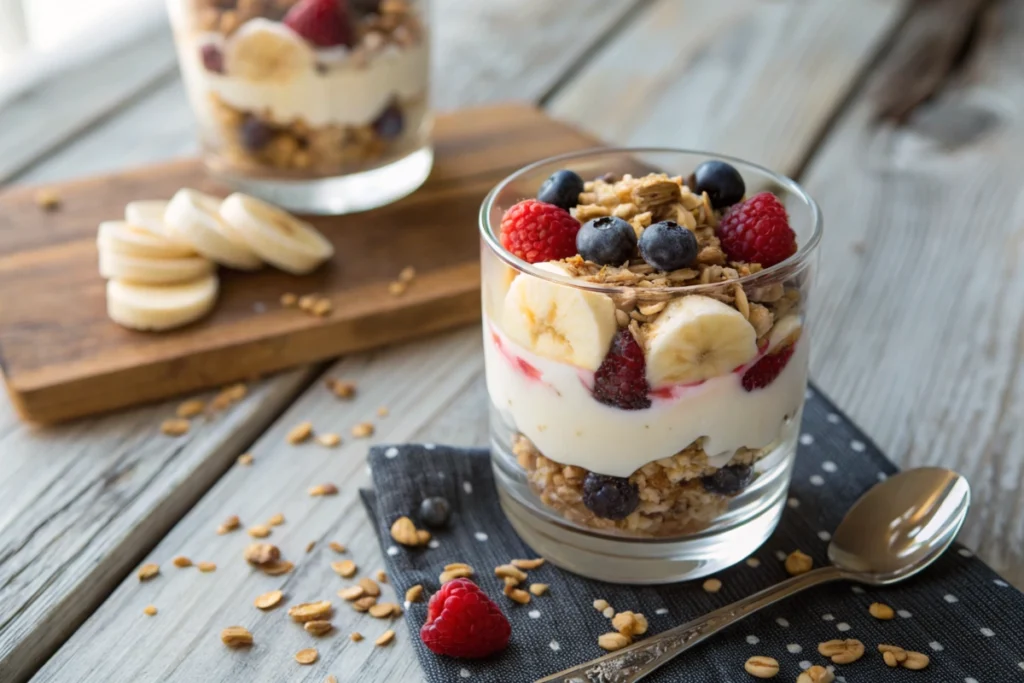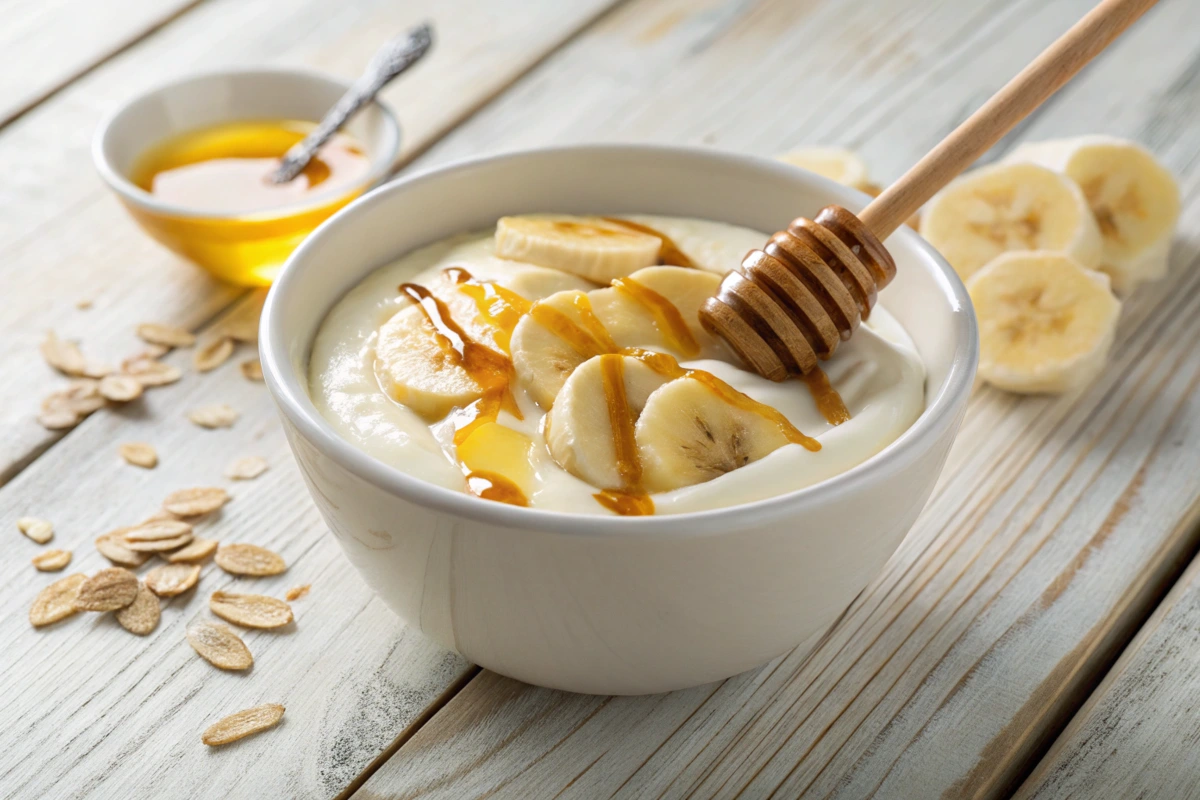Combining banana and yogurt has become a popular dietary trend, celebrated for its creamy texture and satisfying flavor. Whether blended into smoothies or served as a quick snack, this pairing has many fans. But is it always a good idea? Let’s dive into the science, nutrition, and cultural perspectives surrounding this combination to find the answer.
Understanding the Popularity of Banana and Yogurt Combination
Banana and yogurt are staples in many diets, often regarded as a match made in culinary heaven. Their popularity stems from their convenience and compatibility with various meal types.
- Convenience Factor: Both ingredients are easy to store, quick to prepare, and affordable.
- Nutritional Appeal: Together, they provide a mix of carbohydrates, protein, and essential nutrients.
- Versatility: From breakfast parfaits to post-workout smoothies, this combination fits into numerous recipes and dietary goals.
Moreover, the creamy texture of yogurt complements the natural sweetness of bananas, making it a go-to choice for those looking for a balanced and flavorful snack.
Why This Question Matters
Although widely consumed, the combination of bananas and yogurt raises questions about its impact on digestion and overall health. Several dietary philosophies, including Ayurvedic practices, suggest potential drawbacks when these foods are eaten together.
- Cultural Beliefs: In Ayurveda, certain food combinations are considered incompatible.
- Digestive Concerns: Some people report bloating or discomfort after consuming banana and yogurt together.
- Health Implications: Understanding how these foods interact helps ensure they contribute positively to your diet.
Thus, examining the nutritional benefits and potential downsides provides a clearer picture of whether this popular pairing is as wholesome as it seems.
Nutritional Value of Bananas

Bananas are a powerhouse of nutrients, offering several benefits when consumed as part of a balanced diet:
- Rich in Potassium: Helps regulate blood pressure and maintain electrolyte balance.
- Good Source of Dietary Fiber: Supports digestion and promotes satiety.
- Contains Essential Vitamins: Such as Vitamin C and Vitamin B6, which aid immune function and energy production.
- Natural Sugars: Provide a quick energy boost, making bananas a favorite for athletes and active individuals.
Bananas are not only versatile but also contribute to heart health, digestion, and muscle function, making them a staple in many diets.
Nutritional Benefits of Yogurt
Yogurt is celebrated for its creamy texture and impressive health benefits, particularly as a fermented dairy product:
- High in Protein: Essential for muscle repair and overall body function.
- Rich in Calcium: Promotes strong bones and teeth.
- Probiotics: Live bacteria in yogurt support gut health by improving digestion and immune function.
- Vitamin D: Fortified varieties help maintain bone density and reduce inflammation.
From aiding in digestion to improving bone health, yogurt is a nutrient-dense option for people of all ages.
Common Ways People Consume Banana and Yogurt Together
The versatility of bananas and yogurt means they can be enjoyed in a variety of ways:
- Smoothies: A favorite among health enthusiasts, combining yogurt and bananas in a blender creates a creamy, nutritious drink.
- Parfaits: Layering yogurt, bananas, and granola makes for a delicious and quick breakfast or snack.
- Desserts: Yogurt-based banana desserts like frozen pops or puddings are refreshing options for a sweet treat.
- Post-Workout Snacks: Mixing bananas and yogurt provides a balanced dose of carbs and protein for muscle recovery.
This duo’s popularity is a testament to its versatility and the ease with which it can be incorporated into various meals.
The Science Behind Mixing Foods
Food combinations are more than just culinary preferences; they can significantly impact digestion, nutrient absorption, and overall health. Understanding the principles behind mixing foods is essential to evaluate the compatibility of bananas and yogurt.
How Digestive Compatibility Works
Digestive compatibility refers to how well different foods combine in the stomach without causing discomfort or interfering with nutrient absorption.
- Enzyme Function: Different foods require specific enzymes for digestion. Combining foods with conflicting digestion speeds (e.g., fast-digesting bananas and slower-digesting yogurt) can lead to bloating or gas.
- Stomach Acidity: Yogurt, a fermented food, thrives in a slightly acidic environment, while bananas are considered neutral. This contrast can affect how they are broken down during digestion.
- Fermentation Risks: In some cases, combining sugary fruits like bananas with dairy can promote fermentation in the stomach, leading to discomfort.
While these factors might not affect everyone, they highlight why some people experience digestive issues with certain food combinations.
Ayurvedic Perspective on Mixing Banana and Yogurt
Ayurveda, the ancient Indian system of medicine, has specific guidelines about food combinations, including the concept of “Viruddha Ahara” (incompatible foods).
“Viruddha Ahara” (Incompatible Foods) in Ayurveda
According to Ayurveda:
- Bananas and Yogurt Are Incompatible: The combination is believed to disrupt digestion and create toxins in the body, referred to as “Ama.”
- Cooling and Heating Properties: Bananas are considered cooling, while yogurt has a heating effect. When consumed together, this mismatch may lead to imbalances in the body’s energy or “doshas.”
Potential Digestive Issues of Mixing Bananas and Yogurt
Even outside Ayurvedic practices, some individuals report digestive problems after eating banana and yogurt together:
- Bloating and Gas: Caused by fermentation of sugars in bananas interacting with yogurt.
- Mucus Formation: This pairing is believed to increase mucus production, potentially exacerbating respiratory issues in sensitive individuals.
Understanding these potential issues can help people decide whether this combination suits their digestive health.
Can We Mix Banana and Yogurt Together?
Despite concerns, many people continue to enjoy banana and yogurt without issues. Expert opinions shed light on the benefits and risks of this combination.
Expert Opinions on Combining These Two Foods
Dietitians and nutritionists generally agree that combining bananas and yogurt is safe for most people, as long as certain precautions are taken.
- Personal Tolerance: Individuals who do not experience digestive discomfort can enjoy this pairing.
- Health Goals: The combination offers nutritional benefits, making it suitable for athletes and active individuals seeking a quick energy boost.
However, those with specific dietary restrictions or sensitivities may need to avoid it.
Benefits of Eating Banana and Yogurt Together
For those who tolerate this combination well, it offers several health benefits:
Probiotic and Prebiotic Synergy
- Probiotics in Yogurt: Support gut health by introducing beneficial bacteria.
- Prebiotics in Bananas: Feed the healthy bacteria, enhancing their effectiveness.
Together, they create a symbiotic relationship that supports a healthy digestive system.
Energy Boost and Muscle Recovery
The combination of yogurt’s protein and bananas’ carbohydrates makes it an excellent choice for:
- Post-Workout Recovery: Helps repair muscles and replenish glycogen stores.
- Quick Energy: Ideal for busy mornings or pre-workout snacks.
This duo provides the perfect balance of macronutrients to fuel an active lifestyle.
Downsides of Eating Banana and Yogurt Together
While beneficial for many, some drawbacks are worth considering.
Risk of Mucus Formation
The pairing may increase mucus production, which could worsen symptoms in individuals with asthma, sinus issues, or colds.
Potential Allergic Reactions
- Dairy Sensitivities: People with lactose intolerance or milk protein allergies might experience discomfort from yogurt.
- Banana Allergies: Rare but possible, especially in those allergic to latex or other fruits like avocados.
Knowing your body’s responses is crucial to avoid adverse effects.
What Should Not Be Mixed With Yogurt?
While bananas may be a controversial pairing with yogurt, other foods are clearly discouraged.
Foods to Avoid Combining With Yogurt
Citrus Fruits
The acidity of citrus fruits like oranges or lemons can curdle yogurt, making it unappealing and harder to digest.
Meats and Fish
Combining yogurt with meats or fish is avoided in many cuisines due to potential digestive issues and conflicting flavors.
Other Dairy Products
Pairing yogurt with additional dairy, such as milk or cheese, can overwhelm the digestive system and lead to discomfort.
What Should Not Be Mixed With Bananas?
Like yogurt, bananas also have certain pairing limitations.
Milk
Though commonly paired, milk and bananas are considered an incompatible combination in Ayurveda due to potential mucus production and digestive issues.
High-Acidity Foods
Fruits like pineapples or grapefruits, with their high acidity, can interfere with the digestion of bananas, causing discomfort.
Best Practices for Eating Banana and Yogurt
While bananas and yogurt can be a nutritious pairing, following specific guidelines can help maximize benefits while minimizing potential drawbacks.
Tips for Safely Combining Banana and Yogurt
Eating banana and yogurt together can be enjoyable and healthy when consumed with mindfulness.
Portion Control and Frequency
- Moderation: Stick to a serving size of one medium banana and half a cup of yogurt to avoid overloading the digestive system.
- Frequency: Enjoy this combination a few times a week rather than daily to give your body variety and prevent any imbalances.
By limiting portion sizes, you reduce the risk of bloating and discomfort while still reaping nutritional benefits.
Ideal Times to Eat Banana and Yogurt Together
Timing plays an essential role in how well your body digests this combination.
Can We Eat Banana and Yogurt Together at Night?
Eating banana and yogurt at night may not be ideal for everyone.
- Digestive Challenges: For some, this pairing can slow digestion during sleep and increase mucus production.
- Respiratory Issues: If you have a cold, asthma, or sinus problems, avoid eating banana and yogurt at night as it may exacerbate symptoms.
Morning vs. Night Consumption Considerations
- Morning: Best time to enjoy this combination for energy and better digestion. A banana-yogurt smoothie can provide an excellent start to the day.
- Night: If consumed, keep the portion small and ensure at least two hours before bedtime to aid digestion.
Alternative Recipes Combining Banana and Yogurt

To keep your meals exciting and nutritious, here are some creative ways to enjoy banana and yogurt together.
Smoothie Recipes With Yogurt and Bananas
Smoothies are an excellent option for combining bananas and yogurt in a refreshing way:
- Classic Banana Yogurt Smoothie: Blend one banana, half a cup of yogurt, a splash of almond milk, and a pinch of cinnamon.
- Tropical Twist: Add pineapple and a handful of spinach for extra nutrients.
- Protein Boost: Include a scoop of protein powder for a post-workout snack.
Healthy Dessert Ideas
Banana and yogurt make for a healthier alternative to sugar-laden desserts:
- Frozen Banana Yogurt Pops: Dip banana slices in yogurt, sprinkle with nuts, and freeze for a delightful treat.
- Banana-Yogurt Pudding: Mash bananas, mix with yogurt, and layer with granola for a simple dessert.
Post-Workout Snack Options
The combination of carbs and protein is perfect for recovery:
- Banana Yogurt Bowl: Top yogurt with sliced bananas, chia seeds, and a drizzle of honey.
- Banana-Yogurt Wrap: Spread yogurt on a whole-grain wrap, add banana slices, and roll up for a portable snack.
Final Thoughts and Recommendations
Banana and yogurt can be a nutritious and delicious pairing when enjoyed responsibly. By understanding your body’s responses and following best practices, you can make the most of this combination.
Moderation Is Key
- Balance your intake to avoid potential digestive discomfort.
- Rotate with other fruits and proteins for variety in your diet.
Listen to Your Body’s Response
- If you experience bloating, mucus formation, or other issues, consider adjusting portion sizes or timing.
- Pay attention to how you feel after eating banana and yogurt together, as individual tolerances vary.
Consult a Nutritionist for Personalized Advice
For those with specific health concerns or dietary restrictions, seeking professional guidance is always beneficial. A nutritionist can tailor recommendations to suit your needs.
FAQ
Is it healthy to eat banana and yogurt every day?
A1: Eating banana and yogurt daily is generally safe for most people, but moderation is advised to avoid potential digestive issues.
Can I eat banana and yogurt if I’m lactose intolerant?
A2: If you’re lactose intolerant, opt for lactose-free yogurt or plant-based alternatives like almond or coconut yogurt.
Are there any health risks associated with eating banana and yogurt at night?
A3: For some individuals, this pairing may cause slower digestion or mucus production at night, so it’s best to eat it earlier in the day.
Can children eat banana and yogurt together?
A4: Yes, it’s a nutritious option for children, provided they have no allergies or digestive issues.
How can I make banana and yogurt more digestible?
A5: Add spices like cinnamon or ginger to enhance digestion and consider eating smaller portions.
Are there other fruits I can pair with yogurt instead of bananas?
A6: Yes, berries, apples, and mangoes are excellent alternatives to bananas and pair well with yogurt.
Does Ayurveda recommend avoiding banana and yogurt for everyone?
A7: Ayurveda suggests avoiding this combination for individuals prone to respiratory or digestive issues, but it may be fine for others in moderation.

